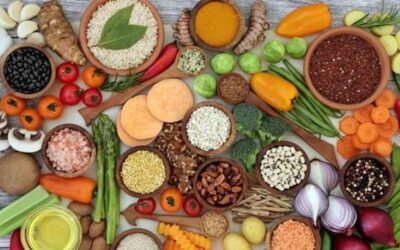Constipation
which foods to avoid?- Constipation is a condition where an individual facing the problem of emptying the bowels and also the stools become harder. Generally, it occurs when the bowel movement is fewer than three times per week. It is a digestive problem, and in most cases, it occurs due to excess water absorption by a colon. There are two types of constipation.
- Acute constipation: Generally, it stays for a shorter period, around a week. In this case, a bit change in lifestyle, change in food habits is enough to get rid of it.
- Chronic constipation: It stays for a more extended period, more than 3 weeks. In this case, you may need to take a laxative supplement. Eventually, in serious condition, you may need to go for surgery. Usually, a healthy lifestyle and diet will keep you away from it.
Why does constipation happen? and in constipation which foods to avoid

It is a digestive disorder problem. When the colon absorbs too much water, it will reduce the contraction of muscles. As a result, stools will pass slowly and lose more water.
Several causes can lead to it, which are
Lack of fibers in the diet

People who take enough fiber food in their daily diet is less likely to affect by constipation. It is essential to have around 20 to 25 gm of fiber food in a daily diet. Usually, fibers food promotes bowel movement, and that will prevent constipation. For example, fresh vegetables, fruits, and whole grains are rich in fibers. On the other hand, eggs, cheese, and meat include low fiber quantity.
In 2018 at the Graduate School of Sciences and Engineering for Innovation, Yamaguchi University studied dietary fiber in adults and increase the intake of dietary fibers cause a lower rate of constipation.
Physical inactivity

Diminished physical activity can be a cause for constipation. Unfortunately, physical inactivity is common for older people since they experience bone stiffness and muscle soreness. The idea behind the physical inactivity-constipation relationship is not clear yet. However, expertise assumes that physical exercise keeps metabolism high and maintain better bowel movement.
Medication

Unfortunately, medication might lead to constipation. Some common pill that causes this problem include: –
- Narcotic (opioid) pain drugs like codeine, oxycodone.
- Antidepressant drugs such as amitryptiline.
- Iron supplement phenytoin, carbamazepine.
- Calcium channel blocker such as diltiazem.
Milk

Few people become constipated when they consume milk and dairy product.
Irritable bowel syndrome (IBS)

Irritable bowel syndrome is long term digestive disorder. The individual who suffers from IBS has more frequent constipation than other individuals.
Pregnancy

Hormonal change can cause constipation in pregnancy. Also, the uterus may compress the intestine and slowing the passes of foods.
Aging

As a person grows older, their metabolism works slowly, which becomes a less intestinal activity that will cause constipation.
Overdose of laxative

Some people have a strong belief that they have to defecate at least once per day. If they fail to excrete, they tend to use a laxative. Unfortunately, some laxatives, especially stimulant ones, force the body to habituate them. Consequently, the person will not be able to pass the fecal matter without the stimulant laxative. As a result, you will increase the laxative dose until it does not work at all.
Not drinking enough water

If you drink plenty of water regularly, you will reduce the chances of this problem. Usually, sodas and caffeine beverages induce constipation, as well as alcohol.
Collon or rectum problem

The tumor can restrict the passage and abnormal narrowing of the colon, lead to constipation.
In Constipation which foods to avoid list also includes:
- Red Meat
- Fried or Fast Foods
- Persimmons
- Milk and Dairy Products
- Processed Grains
- Gluten-Containing Foods
- Unripe Bananas
What are the diseases that cause constipation?

There are few diseases that can slow down the movement of stools
through colon, rectum; which causes constipation. Such diseases include
- Neurological disorder: Stroke, Parkinson’s disease.
- Endocrine and metabolic condition: Diabetic, hypercalcemia, hyperthyroidism.
- Cancer: Constipation is common for cancer patients since they take a lot of pain medication.
Which fibers are useful for constipation?

An individual should take 20 to 25 grams of fibers each day. For men younger than 51 years, they need to take 38 grams of fiber. On the other hand, women below 51 ages require to take 25gm of fiber daily. The American physician recommends taking 2cups of fiber-filled fruits and vegetables like apple, orange, Broccoli, etc. Dietary fibers mean the edible part of plants or carbohydrate that does not get digested. Almost every plant food contains fibers.
Dried beans, oats, rice bran, and barley; are examples of soluble fiber. However, wheat bran and whole-grain contain insoluble fiber. Among all the fiber food Whole-grain bread, Cereals, and kinds of pasta are best to ease constipation. Wheat bran work as a natural laxative.
Blackston, MD, AGAF, professor of internal medicine and director of the inflammatory bowel disease program at Virginia Commonwealth University Health Center in Richmond, Va. Says that people who take high fiber food in their regular diet less likely to have constipation.
In 2012, The Department of Clinical Nutrition, The First Affiliated Hospital of Soochow University, China investigated dietary fiber in constipation and found a positive result. They said that dietary fibers increase stool frequency in patients with constipation.
Fruits to prevent constipation

Fruits are rich in fibers, which helps to ease out this problem. There are several regularly available food that can be effective for constipation relief. These fruits include






